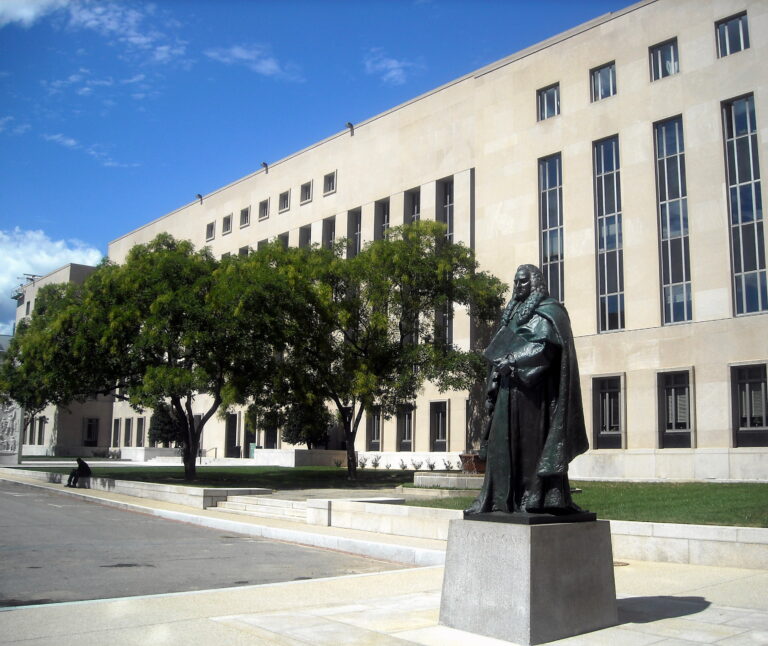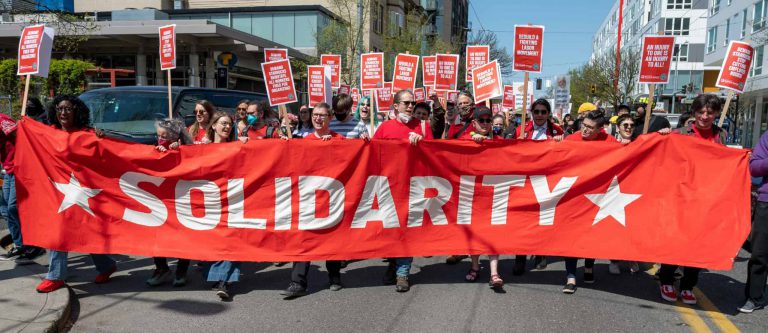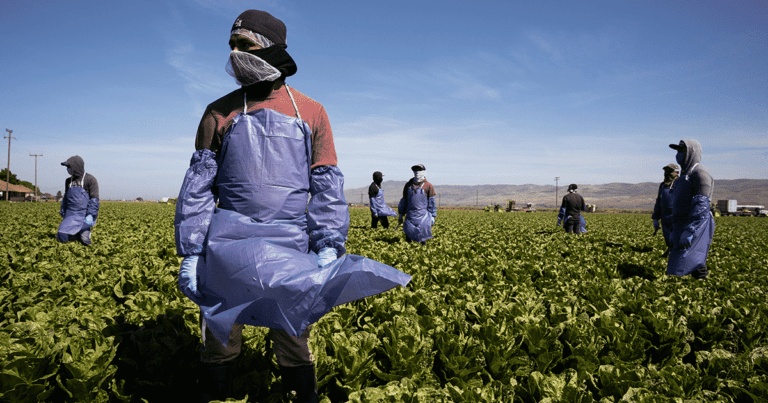
Benjamin Sachs is the Kestnbaum Professor of Labor and Industry at Harvard Law School and a leading expert in the field of labor law and labor relations. He is also faculty director of the Center for Labor and a Just Economy. Professor Sachs teaches courses in labor law, employment law, and law and social change, and his writing focuses on union organizing and unions in American politics. Prior to joining the Harvard faculty in 2008, Professor Sachs was the Joseph Goldstein Fellow at Yale Law School. From 2002-2006, he served as Assistant General Counsel of the Service Employees International Union (SEIU) in Washington, D.C. Professor Sachs graduated from Yale Law School in 1998, and served as a judicial law clerk to the Honorable Stephen Reinhardt of the United States Court of Appeals for the Ninth Circuit. His writing has appeared in the Harvard Law Review, the Yale Law Journal, the Columbia Law Review, the New York Times and elsewhere. Professor Sachs received the Yale Law School teaching award in 2007 and in 2013 received the Sacks-Freund Award for Teaching Excellence at Harvard Law School. He can be reached at [email protected].
It is way too early to make predictions about the outcome of Friedrichs v. CTA, but if you’re interested in what a Friedrichs opinion authored by Justice Alito overruling Abood would look like, you might read Part II of Justice Alito’s opinion in Harris v. Quinn. There, writing for a five-justice majority, Justice Alito begins by calling Abood an “anomaly” (something he also argued in his earlier opinion in Knox v. SEIU). As Justice Alito wrote:
The primary purpose of permitting unions to collect fees from nonmembers . . . is to prevent nonmembers from free-riding on the union’s efforts, sharing the employment benefits obtained by the union’s collective bargaining without sharing the costs incurred. But such free-rider arguments . . . are generally insufficient to overcome First Amendment objections.
We have pointed out the flaw in this reasoning before, stressing the difference between the union context and other contexts in which the free-rider argument arises, and noting Justice Scalia’s statement of the relevant proposition from his concurrence in Lehnert v. Ferris Faculty Ass’n:
Our First Amendment jurisprudence recognizes a correlation between the rights and the duties of the union, on the one hand, and the nonunion members of the bargaining unit, on the other. Where the state imposes upon the union a duty to deliver services, it may permit the union to demand reimbursement for them; or, looked at from the other end, where the state creates in the nonmembers a legal entitlement from the union, it may compel them to pay the cost. The ‘compelling state interest’ that justifies this constitutional rule is not simply elimination of the inequity arising from the fact that some union activity redounds to the benefit of ‘free-riding’ nonmembers; private speech often furthers the interests of nonspeakers, and that does not alone empower the state to compel the speech to be paid for. What is distinctive, however, about the ‘free riders’ who are nonunion members of the union’s own bargaining unit is that in some respects they are free riders whom the law requires the union to carry — indeed, requires the union to go out of its way to benefit, even at the expense of its other interests. In the context of bargaining, a union must seek to further the interests of its nonmembers; it cannot, for example, negotiate particularly high wage increases for its members in exchange for accepting no increases for others. Thus, the free ridership (if it were left to be that) would be not incidental but calculated, not imposed by circumstances but mandated by government decree.
In Harris, though, Justice Alito moves beyond the “anomaly” point and writes that “[t]he Abood Court’s analysis is questionable on several grounds.” These several grounds form the core of his critique and will likely feature in Friedrichs, should Justice Alito command a majority. In sum, the questionable grounds of Abood according to the Harris opinion are:
1. Abood was wrong to rely on the precedential value of Hanson and Street , two cases that had upheld the constitutional permissibility of fair share agreements in the Railway Labor Act context. In Alito’s words, “The Abood Court seriously erred in treating Hanson and Street as having all but decided the constitutionality of compulsory payments to a public sector union.”
2. Related to the first point, Justice Alito then concludes that Abood doesn’t adequately take account of differences between private-sector unionism (at issue in Hanson and Street) and public sector unionism. Thus, “Abood failed to appreciate the difference between the core union speech involuntarily subsidized by dissenting public-sector employees and the core union speech involuntarily funded by their counterparts in the private sector.” (Max Utzschneider wrote a good post about this point while Harris was pending.)
3. Abood creates, but did not anticipate,”practical administrative problems” because it requires unions to distinguish between “chargeable” expenses (those related to collective bargaining and contract administration) and “nonchargeable” expenses (those made for political and ideological purposes).
4. Abood also creates, but did not foresee, the “practical problems that would face objecting nonmembers,” primarily the burden that such employees must bear in order to object to the union’s accounting of chargeable v. nonchargeable expenses.
5. Abood rests on what Justice Alito calls an “unsupported empirical assumption,” that a system of exclusive union representation – the system that currently defines both public and private sector unionism in the United States – depends on the permissibility of fair share agreements.
These are Justice Alito’s core critiques of Abood. There are, of course, strong counters to each of them, some of which we have already pointed out and others that we will address in the coming weeks. But the critique in Harris likely offers some important signposts about where the Court is going, assuming there are five votes to overturn Abood.






Daily News & Commentary
Start your day with our roundup of the latest labor developments. See all
April 24
NLRB seeks to compel Amazon to collectively bargain with San Francisco warehouse workers, DoorDash delivery workers and members of Los Deliveristas Unidos rally for pay transparency, and NLRB takes step to drop lawsuit against SpaceX over the firing of employees who criticized Elon Musk.
April 22
DOGE staffers eye NLRB for potential reorganization; attacks on federal workforce impact Trump-supporting areas; Utah governor acknowledges backlash to public-sector union ban
April 21
Bryan Johnson’s ULP saga before the NLRB continues; top law firms opt to appease the EEOC in its anti-DEI demands.
April 20
In today’s news and commentary, the Supreme Court rules for Cornell employees in an ERISA suit, the Sixth Circuit addresses whether the EFAA applies to a sexual harassment claim, and DOGE gains access to sensitive labor data on immigrants. On Thursday, the Supreme Court made it easier for employees to bring ERISA suits when their […]
April 18
Two major New York City unions endorse Cuomo for mayor; Committee on Education and the Workforce requests an investigation into a major healthcare union’s spending; Unions launch a national pro bono legal network for federal workers.
April 17
Utahns sign a petition supporting referendum to repeal law prohibiting public sector collective bargaining; the US District Court for the District of Columbia declines to dismiss claims filed by the AFL-CIO against several government agencies; and the DOGE faces reports that staffers of the agency accessed the NLRB’s sensitive case files.